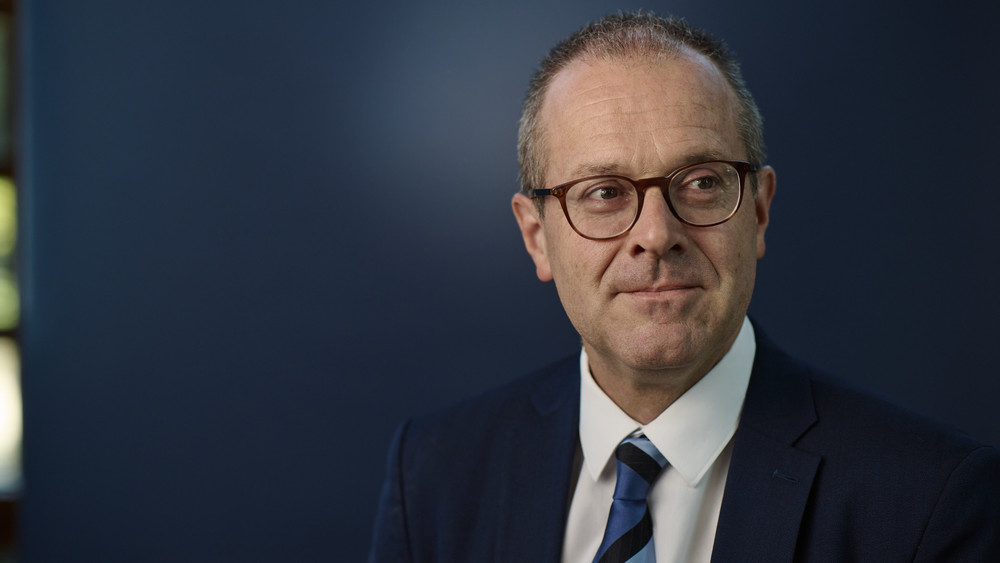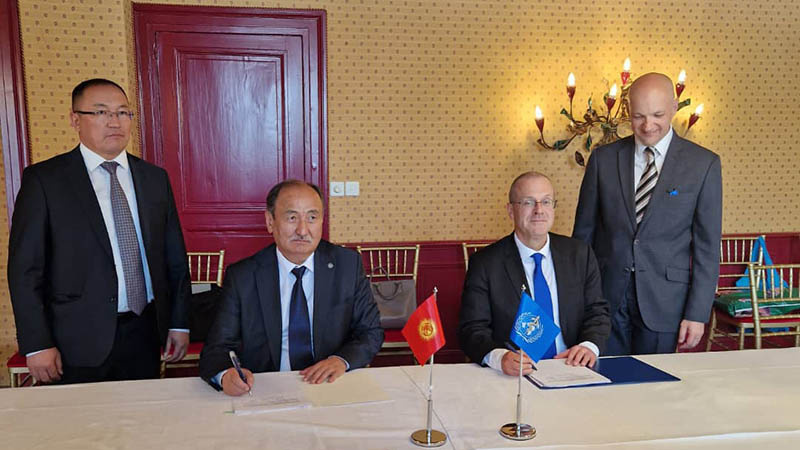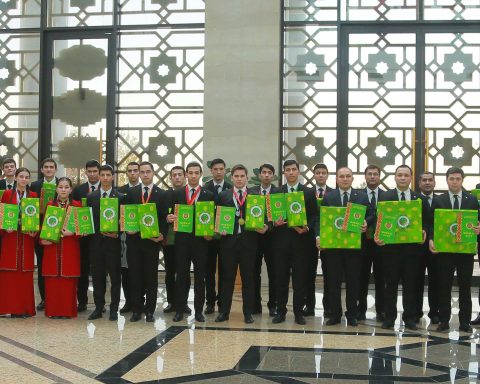Dr Hans Henri P. Kluge, WHO Regional Director for Europe
Central Asia is a region with enviable potential. About half of its population of 80 million people is under the age of 30. It bridges the economic power blocs of Europe and Asia. This year GDP growth in these 5 countries is estimated to be 4.1%, well above the global average of 2.6%, and higher than every other part of the European Region.
Since the turn of this century, there have been significant advances in health across Central Asia. Life expectancy has increased by 5.2 years on average for men, and 4 years for women – now 70.3 and 76.2 years respectively. Maternal mortality has halved in the past two decades, falling from 49 per 100,000 in 2000, to 24 in 2017.
Continuing this upward health trajectory is not simply a moral imperative, but a smart political and economic opportunity.
Investing in health has a positive economic impact: the healthcare sector is one of the top 10 sectors contributing to the economy, and it’s an important employer as well. An Italian study has shown that for every euro invested by the health sector in jobs, it generates 1.8 euros for the rest of the economy. That’s nearly double the return. The close relationship between GDP per capita and employment in healthcare is even stronger in transition economies – such as those in Central Asia – so any investment is likely to yield even bigger gains.
Investing in people’s well-being builds social capital: Injecting only 0.1% of GDP in social protection, labour market policies, and housing can improve the lives of 300,000 within 4 years in a population of 80 million (that of Central Asia) – according to WHO analysis. It also builds health equity.
Prioritizing early childhood interventions on health raises education levels and employment opportunities with an eightfold economic return.
Strong, sustained investment in health and well-being will help the large young population of Central Asia achieve its full potential, and contribute to a better future across the Region.
Focused attention on specific health challenges and opportunities now, will pay dividends in the years ahead.
We have strong examples of the positive impact of investing in health to take inspiration from and build upon.
Turkmenistan has strengthened its health emergency preparedness measures, introducing genomic sequencing to swiftly detect flu viruses and assess the effectiveness of influenza vaccines.
Two years ago, the health ministers of Central Asia agreed to cooperate on 11 action areas for health. The mechanism for doing so – the first of its kind – is the Roadmap for Health and Well-being in Central Asia. Through a combination of political direction, technical prioritization and greater investment in health, the Roadmap seeks to amplify the strengths of each of the 5 Central Asian countries, for the benefit of all.
WHO supports its implementation by partnering on activities, focusing international attention on its objectives, and showcasing progress as an example to other regions.
Now, the Roadmap needs broader buy-in. Today, we have a real opportunity for the region to leap ahead by investing in new technologies and green innovations to ensure that lives and livelihoods are improved at scale. Citizens, governments and businesses share similar concerns, and are eager to implement solutions. It is a unique time of convergence, recognizing the need for investment not only in higher GDP, but in higher human and social capital, and strong, sustainable development in Central Asia.
On 26-27 June, the WHO Regional Office for Europe and the Ministry of Health of the Kyrgyz Republic are bringing together international, regional and national political and investment partners for the Central Asia International Health Investment Forum.
The Forum will highlight the value of investing in health, showcase what is being done to advance the Roadmap, and recalibrate investment priorities. A key outcome will be the creation of a Health Investment Group for Central Asia that will pursue multi-country investments, building on Central Asia’s strengths and strategic advantages to foster sub-Regional stability and prosperity.
Evidence is growing that to advance economic development, social cohesion, environmental regeneration and robust human capital across Central Asia – health is indeed the best investment.







